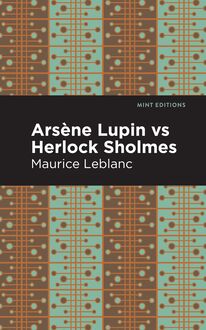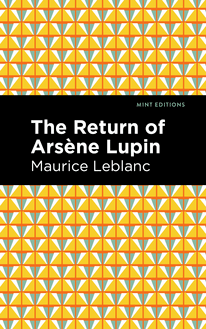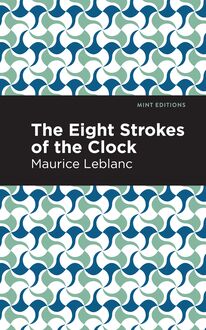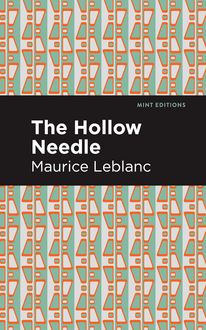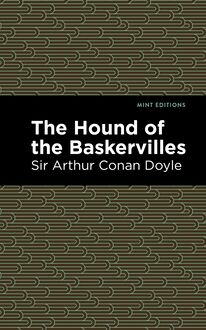-
 Univers
Univers
-
 Ebooks
Ebooks
-
 Livres audio
Livres audio
-
 Presse
Presse
-
 Podcasts
Podcasts
-
 BD
BD
-
 Documents
Documents
-
- Cours
- Révisions
- Ressources pédagogiques
- Sciences de l’éducation
- Manuels scolaires
- Langues
- Travaux de classe
- Annales de BEP
- Etudes supérieures
- Maternelle et primaire
- Fiches de lecture
- Orientation scolaire
- Méthodologie
- Corrigés de devoir
- Annales d’examens et concours
- Annales du bac
- Annales du brevet
- Rapports de stage
La lecture à portée de main
Vous pourrez modifier la taille du texte de cet ouvrage
Découvre YouScribe en t'inscrivant gratuitement
Je m'inscrisDécouvre YouScribe en t'inscrivant gratuitement
Je m'inscrisEn savoir plus
Vous pourrez modifier la taille du texte de cet ouvrage
En savoir plus

Description
Allan Armadale makes a startling deathbed confession to be shared with his young son once he reaches adulthood—he murdered another man named Allan Armadale. It’s a dark secret that inevitably looms over the child of the perpetrator and his victim.
Before dying, Allan Armadale reveals that he previously killed a man also named Allan Armadale. It’s a revelation meant for his young son who discovers the information as an adult.
At this point, he’s run away from his mother’s home and is living under the assumed name--Ozias Midwinter. While traveling, Midwinter encounters another Allan Armadale, who is the son of the man his father killed. The two become close friends and eventually meet one woman who will bring their checkered pasts two ahead.
Wilkie presents a compelling portrait of Victorian society that’s riddled by greed and narcissism. Armadale is a multilayered story of resilience in the face of generational trauma. The story follows two men navigating the sins of their fathers to find true love and friendship.
With an eye-catching new cover, and professionally typeset manuscript, this edition of Armadale is both modern and readable.
Sujets
Informations
| Publié par | Mint Editions |
| Date de parution | 08 décembre 2020 |
| Nombre de lectures | 0 |
| EAN13 | 9781513274256 |
| Langue | English |
| Poids de l'ouvrage | 2 Mo |
Informations légales : prix de location à la page 0,0750€. Cette information est donnée uniquement à titre indicatif conformément à la législation en vigueur.
Extrait
Armadale
Wilkie Collins
Armadale was first published in 1864.
This edition published by Mint Editions 2021.
ISBN 9781513269252 | E-ISBN 9781513274256
Published by Mint Editions ®
minteditionbooks.com
Publishing Director: Jennifer Newens
Design & Production: Rachel Lopez Metzger
Typesetting: Westchester Publishing Services
C ONTENTS P ROLOGUE I. T HE T RAVELERS II. T HE S OLID S IDE OF THE S COTCH C HARACTER III. T HE W RECK OF THE T IMBER S HIP T HE S TORY B OOK THE F IRST I. T HE M YSTERY OF O ZIAS M IDWINTER II. T HE M AN R EVEALED III. D AY AND N IGHT IV. T HE S HADOW OF THE P AST V. T HE S HADOW OF THE F UTURE B OOK THE S ECOND I. L URKING M ISCHIEF II A LLAN AS A L ANDED G ENTLEMAN III. T HE C LAIMS OF S OCIETY IV. T HE M ARCH OF E VENTS V. M OTHER O LDERSHAW ON H ER G UARD VI. M IDWINTER IN D ISGUISE VII. T HE P LOT T HICKENS VIII. T HE N ORFOLK B ROADS IX. F ATE OR C HANCE ? X. T HE H OUSE -M AID ’ S F ACE XI. M ISS G WILT A MONG THE Q UICKSANDS XII. T HE C LOUDING OF THE S KY XIII. E XIT B OOK THE T HIRD I. M RS . M ILROY II T HE M AN IS F OUND III. T HE B RINK OF D ISCOVERY IV. A LLAN AT B AY V. P EDGIFT ’ S R EMEDY VI. P EDGIFT ’ S P OSTSCRIPT VII. T HE M ARTYRDOM OF M ISS G WILT VIII. S HE C OMES B ETWEEN T HEM IX. S HE K NOWS THE T RUTH X. M ISS G WILT ’ S D IARY XI. L OVE AND L AW XII. A S CANDAL AT THE S TATION XIII. A N O LD M AN ’ S H EART XIV. M ISS G WILT ’ S D IARY XV. T HE W EDDING -D AY B OOK THE F OURTH I. M ISS G WILT ’ S D IARY II T HE D IARY C ONTINUED III. T HE D IARY B ROKEN O FF B OOK THE L AST I. A T THE T ERMINUS II I N THE H OUSE III. T HE P URPLE F LASK E PILOGUE I. N EWS FROM N ORFOLK II M IDWINTER
PROLOGUE
I
T HE T RAVELERS
It was the opening of the season of eighteen hundred and thirty-two, at the Baths of Wildbad.
The evening shadows were beginning to gather over the quiet little German town, and the diligence was expected every minute. Before the door of the principal inn, waiting the arrival of the first visitors of the year, were assembled the three notable personages of Wildbad, accompanied by their wives—the mayor, representing the inhabitants; the doctor, representing the waters; the landlord, representing his own establishment. Beyond this select circle, grouped snugly about the trim little square in front of the inn, appeared the towns-people in general, mixed here and there with the country people, in their quaint German costume, placidly expectant of the diligence—the men in short black jackets, tight black breeches, and three-cornered beaver hats; the women with their long light hair hanging in one thickly plaited tail behind them, and the waists of their short woolen gowns inserted modestly in the region of their shoulder-blades. Round the outer edge of the assemblage thus formed, flying detachments of plump white-headed children careered in perpetual motion; while, mysteriously apart from the rest of the inhabitants, the musicians of the Baths stood collected in one lost corner, waiting the appearance of the first visitors to play the first tune of the season in the form of a serenade. The light of a May evening was still bright on the tops of the great wooded hills watching high over the town on the right hand and the left; and the cool breeze that comes before sunset came keenly fragrant here with the balsamic odor of the first of the Black Forest.
“Mr. Landlord,” said the mayor’s wife (giving the landlord his title), “have you any foreign guests coming on this first day of the season?”
“Madame Mayoress,” replied the landlord (returning the compliment), “I have two. They have written—the one by the hand of his servant, the other by his own hand apparently—to order their rooms; and they are from England, both, as I think by their names. If you ask me to pronounce those names, my tongue hesitates; if you ask me to spell them, here they are, letter by letter, first and second in their order as they come. First, a high-born stranger (by title Mister) who introduces himself in eight letters, A, r, m, a, d, a, l, e—and comes ill in his own carriage. Second, a high-born stranger (by title Mister also), who introduces himself in four letters—N, e, a, l—and comes ill in the diligence. His excellency of the eight letters writes to me (by his servant) in French; his excellency of the four letters writes to me in German. The rooms of both are ready. I know no more.”
“Perhaps,” suggested the mayor’s wife, “Mr. Doctor has heard from one or both of these illustrious strangers?”
“From one only, Madam Mayoress; but not, strictly speaking, from the person himself. I have received a medical report of his excellency of the eight letters, and his case seems a bad one. God help him!”
“The diligence!” cried a child from the outskirts of the crowd.
The musicians seized their instruments, and silence fell on the whole community. From far away in the windings of the forest gorge, the ring of horses’ bells came faintly clear through the evening stillness. Which carriage was approaching—the private carriage with Mr. Armadale, or the public carriage with Mr. Neal?
“Play, my friends!” cried the mayor to the musicians. “Public or private, here are the first sick people of the season. Let them find us cheerful.”
The band played a lively dance tune, and the children in the square footed it merrily to the music. At the same moment, their elders near the inn door drew aside, and disclosed the first shadow of gloom that fell over the gayety and beauty of the scene. Through the opening made on either hand, a little procession of stout country girls advanced, each drawing after her an empty chair on wheels; each in waiting (and knitting while she waited) for the paralyzed wretches who came helpless by hundreds then—who come helpless by thousands now—to the waters of Wildbad for relief.
While the band played, while the children danced, while the buzz of many talkers deepened, while the strong young nurses of the coming cripples knitted impenetrably, a woman’s insatiable curiosity about other women asserted itself in the mayor’s wife. She drew the landlady aside, and whispered a question to her on the spot.
“A word more, ma’am,” said the mayor’s wife, “about the two strangers from England. Are their letters explicit? Have they got any ladies with them?”
“The one by the diligence—no,” replied the landlady. “But the one by the private carriage—yes. He comes with a child; he comes with a nurse; and,” concluded the landlady, skillfully keeping the main point of interest till the last, “he comes with a Wife.”
The mayoress brightened; the doctoress (assisting at the conference) brightened; the landlady nodded significantly. In the minds of all three the same thought started into life at the same moment—“We shall see the Fashions!”
In a minute more, there was a sudden movement in the crowd; and a chorus of voices proclaimed that the travelers were at hand.
By this time the coming vehicle was in sight, and all further doubt was at an end. It was the diligence that now approached by the long street leading into the square—the diligence (in a dazzling new coat of yellow paint) that delivered the first visitors of the season at the inn door. Of the ten travelers released from the middle compartment and the back compartment of the carriage—all from various parts of Germany—three were lifted out helpless, and were placed in the chairs on wheels to be drawn to their lodgings in the town. The front compartment contained two passengers only—Mr. Neal and his traveling servant. With an arm on either side to assist him, the stranger (whose malady appeared to be locally confined to a lameness in one of his feet) succeeded in descending the steps of the carriage easily enough. While he steadied himself on the pavement by the help of his stick—looking not over-patiently toward the musicians who were serenading him with the waltz in “Der Freischutz”—his personal appearance rather damped the enthusiasm of the friendly little circle assembled to welcome him. He was a lean, tall, serious, middle-aged man, with a cold gray eye and a long upper lip, with overhanging eyebrows and high cheek-bones; a man who looked what he was—every inch a Scotchman.
“Where is the proprietor of this hotel?” he asked, speaking in the German language, with a fluent readiness of expression, and an icy coldness of manner. “Fetch the doctor,” he continued, when the landlord had presented himself, “I want to see him immediately.”
“I am here already, sir,” said the doctor, advancing from the circle of friends, “and my services are entirely at your disposal.”
“Thank you,” said Mr. Neal, looking at the doctor, as the rest of us look at a dog when we have whistled and the dog has come. “I shall be glad to consult you to-morrow morning, at ten o’clock, about my own case. I only want to trouble you now with a message which I have undertaken to deliver. We overtook a traveling carriage on the road here with a gentleman in it—an Englishman, I believe—who appeared to be seriously ill. A lady who was with him begged me to see you immediately on my arrival, and to secure your professional assistance in removing the patient from the carriage. Their courier has met with an accident, and has been left behind on the road, and they are obliged to travel very slowly. If you are here in an hour, you will be here in time to receive them. That is the message. Who is this gentleman who appears to be anxious to speak to me? The mayor? If you wish to see my passport, sir, my servant will show it to you. No? You wish to welcome me to the place, and to offer your services? I am infinitely flattered. If you have any authority to shorten the performances of your town band, you would be doing me a kindness to exert it. My nerves are irritable, and I dislike music. Where is the landlord? No; I want to see my rooms. I don’t want your arm; I can get upstairs with the help of my stick. M
-
 Univers
Univers
-
 Ebooks
Ebooks
-
 Livres audio
Livres audio
-
 Presse
Presse
-
 Podcasts
Podcasts
-
 BD
BD
-
 Documents
Documents
-
Jeunesse
-
Littérature
-
Ressources professionnelles
-
Santé et bien-être
-
Savoirs
-
Education
-
Loisirs et hobbies
-
Art, musique et cinéma
-
Actualité et débat de société
-
Jeunesse
-
Littérature
-
Ressources professionnelles
-
Santé et bien-être
-
Savoirs
-
Education
-
Loisirs et hobbies
-
Art, musique et cinéma
-
Actualité et débat de société
-
Actualités
-
Lifestyle
-
Presse jeunesse
-
Presse professionnelle
-
Pratique
-
Presse sportive
-
Presse internationale
-
Culture & Médias
-
Action et Aventures
-
Science-fiction et Fantasy
-
Société
-
Jeunesse
-
Littérature
-
Ressources professionnelles
-
Santé et bien-être
-
Savoirs
-
Education
-
Loisirs et hobbies
-
Art, musique et cinéma
-
Actualité et débat de société
- Cours
- Révisions
- Ressources pédagogiques
- Sciences de l’éducation
- Manuels scolaires
- Langues
- Travaux de classe
- Annales de BEP
- Etudes supérieures
- Maternelle et primaire
- Fiches de lecture
- Orientation scolaire
- Méthodologie
- Corrigés de devoir
- Annales d’examens et concours
- Annales du bac
- Annales du brevet
- Rapports de stage



